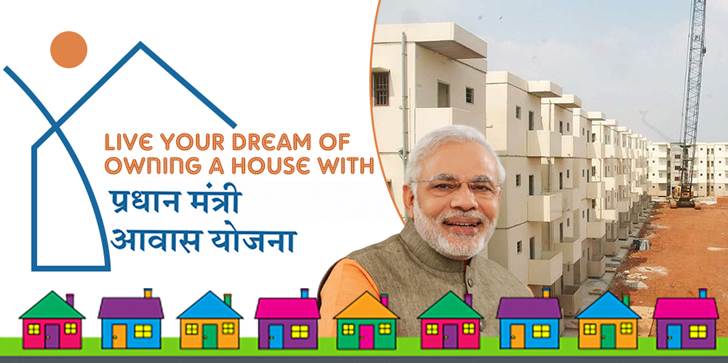Description

Copyright infringement not intended
In News
- The Union Ministry of Rural Development has decided to impose penalties on the State governments for the delay in the completion of the Pradhan Mantri Awas Yojana (Gramin).
- According to a recent report, West Bengal, Chhattisgarh, Odisha, and Assam, are the leading four States who are far behind their targets.
- The initial deadline for the scheme was March 2022, which was extended by another two years till March 2024 due to the COVID-19 pandemic.
- The Ministry sent a circular to all States listing that if a house construction is delayed for more than one month from the date of issue of the target, the State government will be penalized Rs 10 per house for the first month of delay and Rs 20 per house for each subsequent month of delay.

Pradhan Mantri Awas Yojana
- The Ministry of Housing and Urban Poverty Alleviation launched Pradhan Mantri Awas Yojana in 2015.
- The Programme was initiated with the objective of ‘Housing for All by 2022’.
- Providing housing Facilities to rural poor and urban poor including slum dwellers
- Financial assistance is provided to eligible beneficiaries for the construction of pucca houses.
- The Centre and States share the Cost of the houses made under the scheme.
- The mission has 2 Components: Pradhan Mantri Awas Yojana (Urban) and Pradhan Mantri Awas Yojana (Rural).
- Pradhan Mantri Awas Yojana Gramin (PMAY-G) was formerly called the Indira Awas Yojana and was renamed in March 2016.
- It is targeted at promoting accessibility and affordability of housing for all of rural India with the exceptions of Delhi and Chandigarh.
- Pradhan Mantri Awas Yojana (Urban) Programme
- In Situ Slum Redevelopment: A slum rehabilitation grant of Rs. 1 lakh per house, on average, would be admissible for all houses built for eligible slum dwellers in all such projects. Slums so redeveloped should compulsorily be denotified.
- Affordable Housing through Credit Linked Subsidy: Under Credit Linked Subsidy, beneficiaries of Economically Weaker Section (EWS) and Low Income Group (LIG) can seek housing loans from Banks, Housing Finance Companies and other such institutions for new construction and enhancement of existing dwellings as incremental housing.
- Affordable Rental Housing Complexes: It will be a mix of single/double bedroom Dwelling Units and a Dormitory of 4/6 beds including all common facilities which will be exclusively used for rental housing for a minimum period of 25 years.
- Aadhar Card is mandatory to take benefit of the scheme.
- Economically weaker sections and Middle-Income Groups are also eligible for financial assistance under the Missions.
- Priority is given to SCs, STs, OBSs, differently-abled persons, senior citizens, minorities, single women, transgender and other Socio-economic weaker sections of the society.
- Identifying beneficiaries eligible for assistance and their prioritisation to be done using information from the Socio-Economic and Caste Census (SECC) ensures total transparency and objectivity.
- The ownership of houses is provided in the name of female members or joint names.
- Houses made under the scheme would ensure basic facilities like salutation, tap water connection, etc.
- Under the scheme, the Government promoted Training to Rural Masons under Rural Mason Training (RMT) programme to make a pool of trained rural masons available for faster construction of quality houses.
Present Status
- The Prime Minister has said that the Government has provided pucca houses to 2.5 crore families across the country — of these, 2 crore houses are in rural areas.
- To achieve the target of “Housing for All”, the Union Government is implementing Pradhan Mantri Awaas Yojana.
- It aims to assist eligible rural households with an overall target to construct 2.95 crore pucca houses with basic amenities by March 2024.
Objectives of Pradhan Mantri Awas Yojana
- To promote the empowerment of citizens, the Ownership of a house is one of the key indicators of socio-economic development.
- They are ensuring Women's empowerment through the Scheme, as the ownership of the house is provided in the name of a female member or joint ownership.
- To Promote Cooperative Federalism, Autonomy is given to States/UTs to decide the list of beneficiaries and adopt innovative methods to implement housing projects.
https://epaper.thehindu.com/Home/ShareArticle?OrgId=GNQA9HB9A.1&imageview=0
https://t.me/+hJqMV1O0se03Njk9













